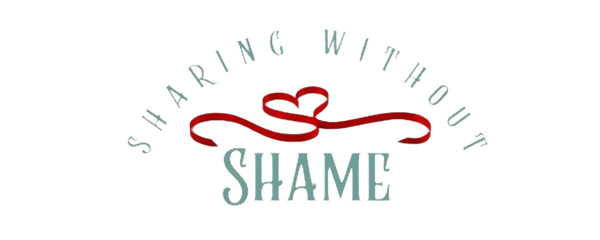The Pain You Never Talk About Is the Pain Your Family Inherits
Unhealed trauma in parents and children is the hidden force driving addiction
By Donna Marston, Founder of Sharing Without Shame (SWOS)
One of the most consistent and heartbreaking patterns I’ve seen through my podcast interviews is this: many people struggling with addiction were first children navigating trauma. They weren’t born addicted. They didn’t simply make “bad choices.” Their addiction didn’t begin with a substance, it began with a wound.
Guests share similar stories: some grew up where violence was normal, others carried secrets so heavy they shaped their identity, and many endured neglect, abandonment, or emotional chaos no child should face. What often goes unsaid is that the young child inside the teen or adult with addiction is still seeking safety.
Substances rarely start out as the problem. They often begin as the only solution to numb, quiet, or escape pain. Alcohol softens memories, opioids calm the body, stimulants create a sense of aliveness where numbness had become normal. Addiction initially provides relief long before it brings destruction.
Here’s the often-overlooked piece: parents frequently carry unhealed trauma too. While their child is coping with childhood wounds, many parents are coping with their own: growing up with addicted caregivers, surviving abuse, living with untreated mental health challenges, or never learning healthy coping skills. Many quietly self-medicate, drinking wine to calm anxiety, overeating for comfort, staying busy to avoid feeling, or using prescription medications to remain “functional.” Not because they’re bad parents, but because they were never taught how to heal.
When the cycle continues: a child carrying trauma can grow into an adult struggling with addiction, often raised by parents with their own unresolved wounds, wounds passed down through generations. Addiction can feel like it flows through the entire family, and in many ways, it does.
You cannot fix someone else’s addiction. You cannot rewrite their childhood. You cannot force recovery. But you can heal your own trauma. You can stop self-medicating, establish healthy boundaries, regulate your emotions, and practice compassionate detachment. When parents do this, the household transforms: the home becomes calmer, safer, and more honest, and the adult child is no longer reacting to chaos. Generational patterns can finally begin to end.
Beyond trauma, neuroscience offers another insight: addiction is a learning disorder of the brain. Repeated exposure to substances or addictive behaviors rewires neural pathways, prioritizing short-term relief over long-term well-being. Addiction is the brain learning how to cope with stress, pain, or emptiness, it is not merely a bad habit.
Understanding addiction this way shifts the focus from shame to retraining the brain. Recovery involves teaching healthier responses to triggers, regulating emotions, and replacing maladaptive coping strategies with positive behaviors.
“Addiction is a disease of the brain that affects behavior.” - Nora Volkow - Neuroscientist
Families play a critical role in this process. Modeling healthy coping skills, maintaining predictable routines, and celebrating small wins can help rewire neural pathways. Simple habits, exercise, consistent sleep, mindfulness, can create new reward circuits in the brain.
“Vulnerability is not winning or losing; it’s having the courage to show up and be seen when we have no control over the outcome.” - Brene Brown - Author
Families who embrace this mindset provide a safe, supportive environment that encourages the addicted person’s brain to learn healthier patterns.
Resources to Explore Further
-
Substance Abuse and Mental Health Services Administration (SAMHSA)
-
The Biology of Desire by Marc Lewis, PhD – explores addiction as a learned pattern in the brain
By combining an understanding of family trauma with the science of brain learning, parents and other person affected by their loved ones addiction can shift their approach from blame to strategy. Healing can ripple through the household, fostering environments where recovery becomes possible, sustainable, and grounded in compassion rather than shame.
